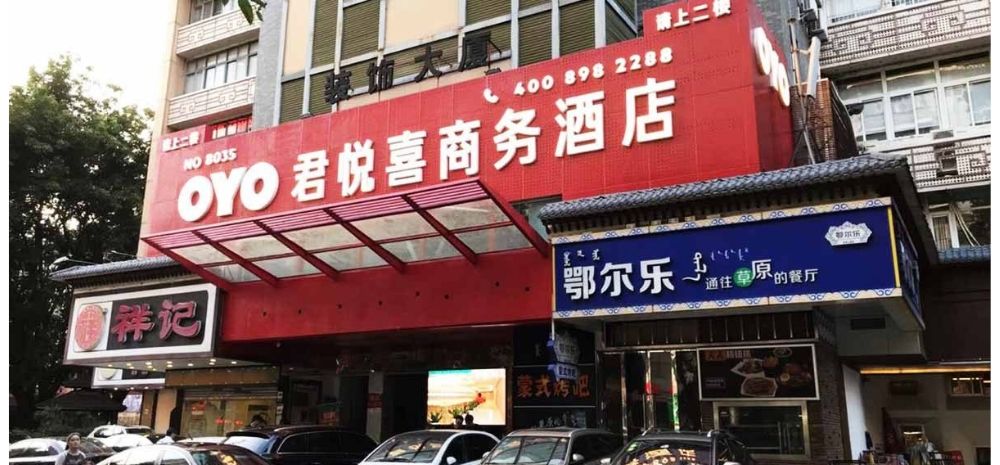Trade and business exchanges have been a major part of cultural relations between India and China since the earliest interactions between the two civilizations. But in contemporary times, very few Indian start-ups have managed to successfully penetrate and compete in China’s domestic market. But one start-up from India stands out, which entered China and dominated the real estate market: OYO. The story of OYO, a popular hotel aggregator in India, is about an Indian startup that rapidly became China’s largest hotel company. It is also a story about the short-lived success of the company in China, and the challenges of culture and people-to-people connections that inhibit the success of Indian start-ups in the mainland.
Origins
Oyo is a popular Indian start-up with humble origins. OYO started in 2011 when 18-year-old Ritesh Agarwal from the small town of Titilagarh in India’s Odisha started a hotel chain called “Oravel Stays”. Two years later, he went through a start-up accelerator program and received a grant of US $100,000 from the Thiel fellowship. This marked the beginning of Ritesh Agarwal’s journey with what became a multi-national chain of hotels, homes, and living spaces, renamed OYO Rooms.
Although based in India, OYO Rooms made the leap to China’s real estate market. In late 2017, after only five years in the Indian market, OYO set up its Chinese subsidiary, OYO Jiudian. Less than 2 years after entering China’s market, OYO Jiudian grew to become the second-largest hotel group in the country, operating in 290+ cities with 10,000+ hotels under their name. What made this incredible growth possible for an Indian company in the highly competitive Chinese market?
An OYO Hotel in China
 Source: Trak.in
Source: Trak.in
The first thing OYO Jiudian (subsidiary of OYO in China) did was sign a Memorandum of Understanding (MoU) with China Lodging Group, a leading player in China’s hotel industry. As part of their collaboration, China Lodging Group invested USD 10 Million as equity into OYO, which played a key role in accelerating the company’s growth in China. OYO also adopted an aggressive strategy to expand its presence in the hotel and real estate market. The company also sought to build partnerships with Chinese platform operators to increase OYO’s visibility on popular consumer platforms. In 2019, OYO Jiudian announced its partnership with Meituan, a Chinese e-commerce shopping platform, aimed at listing 8000+ of its accommodations on the Meituan Hotels platform (source). The partnership expanded OYO’s presence to Tier I, II, III, IV, V and VI cities in China, covering over 337 cities by 2019. In the same year, the company partnered with Ctrip, China’s largest online travel player.
Most of OYO’s hotels in China were concentrated in cities with high levels of tourism and commercial activity. One analysis showed that OYO China opened a hotel every three hours and Ritesh Agarwal himself proclaimed that “we’re opening roughly 10 to 12 buildings a day in China.” In this sense, OYO worked to tap into the small- and medium-sized real estate and hotel management market in China, which proved to be invaluable to their single-minded growth pattern.
Third, OYO had a continuous, unfazed, and single-minded focus on serving the 99% in China – an otherwise untapped market, but potentially the largest one in the country. Since the company’s establishment in China, its aim was to provide high-quality service to Chinese consumers who reside in lower-tier cities and cannot afford high-quality service at luxury hotel chains in the country. OYO’s founder, Ritesh Agarwal said, “We will invest another 12 billion yuan in the Chinese market by 2023”. By 2018, OYO already had more rooms in China than in India – 180,000 rooms in China compared to 160,000 in India.
According to him,
“the secret to success in China is the way we’ve built our business in the country. We didn’t approach the market like an Indian start-up setting shop in China, but like a Chinese player building and localizing the Oyo business model to make it work in the Chinese market.”
He also stated that
“If you go to one of our hotel owners in China and ask them where Oyo is from, they’ll say it’s Chinese.”
The rapid growth of OYO also derived from the fact that it attempted to engage with the culture and conditions of the Chinese marketplace, both from a company perspective as well as a people-centric perspective. Several localisation strategies were employed to bridge the culture gap and bring the Indian company closer to Chinese customers. Founder Ritesh Agarwal learned the Chinese language and is even known by a Chinese name – Li Tai Xi. The company hired local talent for key management positions and provided wide autonomy to its local managers. But all this would prove to be insufficient to guarantee the Indian start-ups success in China.
Problems and Challenges
Not long after OYO’s rapid growth in China, it began to encounter challenges that resulted in the company’s downfall. The company struggled with profitability, and faced issues like poor operations, data fraud and conflicts with hotel owners, which intensified after the outbreak of Covid-19. The company made a loss of US $900 million in 2018-2019, and its China business accounted for nearly 40% of those losses. As a result, facing pressure from investors, the company attempted to limit losses and laid off more than 7,000 people from its China team and five of the seven Vice-Presidents and Senior Vice Presidents, along with 3 CXO’s left the company.
Timeline of OYO's Rise and Fall in China
OYO faced more challenges of operating in partnership with local hotels and businesses. In one particular instance, unhappy with lost revenue, a dozen Chinese hotel operators gathered outside OYO’s Shanghai office, demanding compensation. OYO’s business model in China was based on guaranteed fixed income to all hoteliers, irrespective of guest numbers. Hotel owners who signed up to OYO Jiudian claimed that the company was going back on its word of a fixed income. Even a revamped strategy to manage these challenges called “Oyo Hotel 2.0”, which shifted the emphasis from franchise fees to risk and reward sharing, did little to stem the tide of complaints from hotel owners. Moreover, customers filed complaints about bad experiences and several of the 20,000 OYO-linked hotels across the country complained of unfair treatment.
OYO’s need to acquire market share also caused them to undertake competitive pricing, lowering prices to such an extent that they were going into losses, just to drive out competition. The pursuit of raising occupancy rates didn’t raise popularity but instead created a cycle of lower quality and standards. By 2021, OYO had only 1778 hotels and 70,000 rooms left in the country and the management of the company turned their attention away from China towards USA and Europe in search of greater profitability.
Cultural Understanding for Business Exchange
The challenges of operating a startup venture in China, faced by OYO, reflects the importance of having strong people-to-people relations that can facilitate localisation strategies, understand and respond to consumer preferences and manage partner operations and expectations. The company’s inability to retain its position as a leading hotel brand in China highlights the limited knowledge of the Chinese service sector markets and the necessity of human resources to navigate China’s cultural and social landscape that shapes consumer behavior and perception. The experience of OYO has contributed to a better understanding of business environments in China and could guide the operations of Indian startups who may venture into China.



.jpg)


